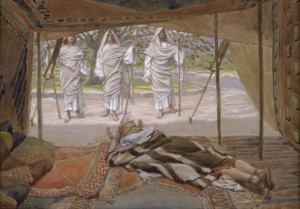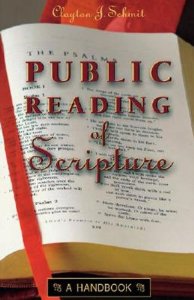Many of us at Mt. Haley are about to embark on a year-long journey through God’s Word. We will be reading through the “Chronological Bible” – every verse of scripture arranged, to the best of our understanding, in the order in which biblical events occurred. Whether or not you have read through the Bible before, this will surely be a fascinating experience!
Reading the Bible regularly is an important part of the life of a disciple of Jesus. But if you are like me, sometimes reading the Bible becomes mundane, repetitive, and – dare I say it? – boring. Sometimes I find myself scanning over words on the page and not allowing them to sink into my soul, to shape how I think, to speak new truths to me. I believe this is a pretty common challenge for anyone who does any task repeatedly. It takes constant dedication to such a task to make it continually meaningful.
An ancient Christian tradition may be of some help to us as we go about the task of reading scripture for our personal spiritual growth. This tradition is called lectio divina, a Latin phrase that means “divine reading.” For centuries, Christians have found this four-step process of reading the Bible to be very meaningful. I recently read a book that summarizes this process quite well:
- Lectio. Read the passage carefully, paying special attention to words or phrases that jump out at you. Use your imagination. In a narrative passage, try to picture the scene and yourself as one of the participants… How would you feel? What would you say? … Read the passage again. After using your imagination to place yourself within its world, ask the crucial question: what is God saying to me through this text today? … What am I to believe? What am I to do? Of what am I to repent? For what am I to give thanks?
- Meditatio. Meditate on what you have seen, smelled, felt, and, above all, heard in your reading. Dwell. Linger. Abide. Chew the cud. Having entered into the text, let it wash over you so that it becomes the place where you are more fully than the room in which you sit.
- Oratio. Pray. Having listened for God’s word in God’s word, respond. Tell God what’s on your mind. Tell God everything, including the intruding thoughts that keep distracting you from attention to the text. Say “Thank you.” Say “I’m sorry.” Ask for help in understanding and embodying this text.
- Contemplatio. Contemplate. Remind yourself that in this conversation with the text you are having a conversation with God, that you are in the presence of God, and that by grace through faith God is lovingly with you. As in meditatio, let this mutual presence be the place where, for these moments, you consciously dwell.
(quoted from Merold Westphal, “Whose Community? Which Interpretation? Philosophical Hermeneutics for the Church,” Grand Rapids: Baker Academic, ©2009)
May God illuminate our lives and shape our thoughts and actions through the ministry of his written word.







